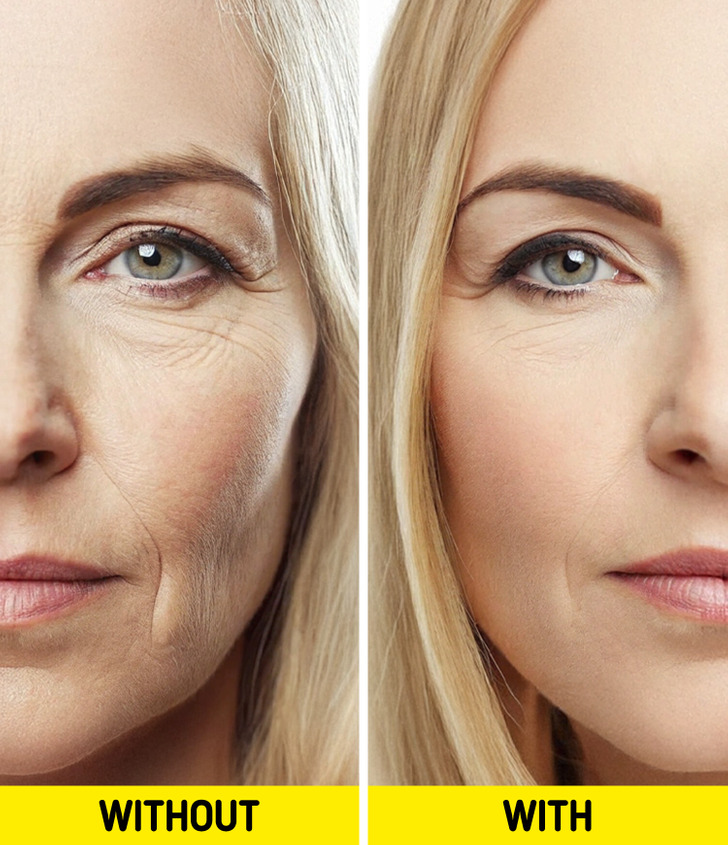Nicole Kidman and Keith Urban’s Daughters Made Their Red Carpet Debut and Left Everyone in Awe


Content is provided for informational purposes only and is not intended as a substitute for medical advice. Seek guidance from your doctor regarding your health and medical conditions.
Maintaining firm, youthful skin isn’t just about what you put on your body — it’s also about what you put in it. Collagen, the most abundant protein in the human body, plays a key role in skin elasticity, hydration, and overall appearance. As we age, our natural collagen production slows down, making it essential to support it through our diet. Luckily, many foods can help stimulate collagen synthesis and protect existing collagen in the body.

Collagen acts as a support structure in the skin, providing firmness, elasticity, and strength. This protein forms a network of fibers that keeps the skin smooth and supple, helping it recover from stretching and injury. As we age, natural collagen production decreases, leading to a loss of volume and elasticity, giving way to wrinkles, fine lines, and sagging. Therefore, maintaining adequate collagen levels is key to maintaining a youthful appearance and healthy skin.

Collagen plays a crucial role in skin hydration by strengthening the skin’s structure and improving its ability to retain moisture. A randomized, placebo-controlled clinical study showed that daily supplementation of collagen, along with acerola extract, vitamin C, zinc, biotin, and vitamin E, for 12 weeks resulted in significant improvements in skin hydration, elasticity, roughness, and density. These improvements were maintained even four weeks after discontinuation of supplementation, indicating sustained effects on skin health.
The body’s natural collagen production begins to decline after the age of 25, which can lead to a loss of firmness, elasticity, and radiance in the skin. It is therefore recommended to incorporate a routine where collagen is present. By doing so, you can prevent the appearance of wrinkles and other visible signs of aging, keeping your skin firmer and healthier over time. If you are older, it also works to improve the quality of your skin.
Similarly, using sunscreen can help prevent collagen loss, as sun exposure is very damaging to the skin.
Gelatin is an excellent source of collagen. Both collagen and gelatin share important benefits, as gelatin is derived from cooked collagen. Consuming gelatin can support the body’s natural collagen production, helping to maintain skin elasticity and reducing joint wear and tear over time. It is also versatile and easy to incorporate into your daily diet.
Bone broth is one of the most potent natural sources of collagen. Made by simmering animal bones and connective tissue over a long period, it releases collagen, gelatin, and essential amino acids like glycine and proline into the broth. These nutrients directly support skin elasticity, hydration, and repair. Regularly consuming bone broth can help restore youthful skin and reduce signs of aging.
Avocados are rich in healthy fats and vitamin E, a powerful antioxidant that helps protect collagen fibers from damage. They also contain compounds that may help boost the skin’s natural barrier and moisture levels. Including avocados in salads, spreads, or smoothies can support skin hydration, elasticity, and collagen maintenance.
Octopus, as well as being a rich source of protein and essential minerals, contains collagen in its skin and muscles, making it a beneficial food for skin health. Recent studies have identified compounds in octopus skin that possess antioxidant properties and can stimulate collagen production in the skin, keeping it hydrated.
Spinach is a vegetable that can contribute significantly to collagen production in the body. This is due to its high content of chlorophyll, the pigment responsible for its deep green color, which has been shown to promote the formation of collagen precursors, known as procollagen, essential for maintaining skin elasticity and firmness.
In addition, spinach is rich in vitamin C, a key nutrient that stimulates collagen synthesis and protects skin cells against oxidative damage. Incorporating spinach into your daily diet, whether in salads, smoothies, or cooked dishes, is a simple and delicious way to care for your skin.
Tripe is a part of the stomach of ruminant animals, such as cows, and is noted for its high collagen content. Consuming tripe can be an excellent way to support collagen production, contributing to healthier skin and stronger joints. You can add this food to your diet through stews or soups.
Berries are loaded with antioxidants and vitamin C, both of which are crucial for collagen production and protection. These fruits help fight free radicals that degrade collagen and promote new collagen formation. Including a variety of berries in your diet can not only improve skin appearance but also enhance its resilience over time.
Squid is an outstanding source of collagen. If you want to maintain skin elasticity and firmness, as well as joint health, it is best to implement this food into your diet. Studies have shown that collagen extracted from squid skin contains a high percentage of collagen, with a low fat content and a high proportion of moisture, which facilitates its absorption into the body.
In addition, this collagen is rich in amino acids such as glycine and proline, which are essential for collagen synthesis in the body.
Citrus fruits are exceptionally rich in vitamin C, a key player in the collagen synthesis process. Vitamin C not only boosts the production of collagen but also protects existing collagen from oxidative damage. Adding citrus fruits to your daily diet—whether through fresh juices, fruit salads, or as a zesty addition to meals—can help maintain firm, glowing skin.
Kiwi is a fruit rich in vitamin C, an essential nutrient for collagen synthesis. Consuming kiwifruit regularly can stimulate the body’s natural collagen production, helping to maintain firm, healthy skin. In addition, kiwifruit contains antioxidants that protect skin cells against oxidative damage, contributing to a more youthful appearance. It can be eaten in salads, smoothies, or as a healthy snack.
Garlic not only adds flavor to our meals, but it can also be beneficial for the body’s production of collagen. Garlic is rich in sulfur, a trace mineral that helps synthesize and prevent the breakdown of collagen. Making a stew, sauce, or dressing with garlic can help maintain firm, healthy skin.
Whether it’s through protein-rich seafood, vitamin-packed fruits, or nourishing broths, these foods can make a noticeable difference over time. You may also want to know about some red flags your body raises when you might be low in iron, and unexpected body changes during menopause — both packed with insights to help you stay in tune with your body and feel your best.











